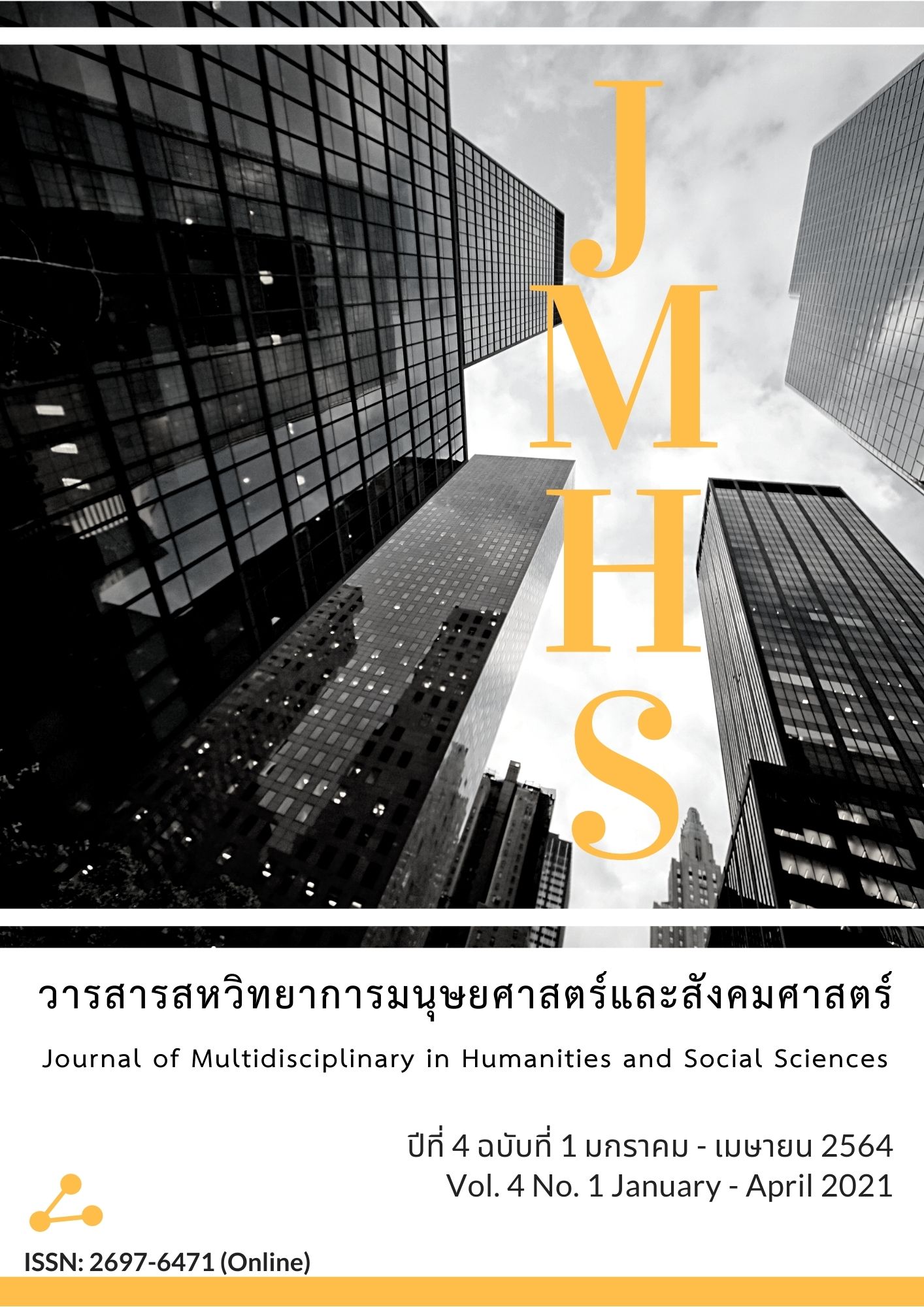Paulo Freirean Methodology for Functional Literacy and Potential Development of Female Inmates in Correctional Department, Region 9
Main Article Content
Abstract
The objectives of this research article were 1) to study the problem of illiteracy and the needs of illiterate female inmates in the correctional department, region 9; 2) to develop a study model based on the Paolo Ferré concept (Paulo Freirean methodology) and 3) to study the results of the application of Paulo Freirean methodology to develop the potentiality and literacy of female inmates in the correctional department, region 9. The research model was qualitative research using Paulo Freirean methodology of teaching literacy to adults as a research framework. The research area was Songkhla Women Correctional Institution. The sample used was 12 illiterate female inmates who were chosen by using a specific selection method. The tool used for data collection was open-ended interview questions. The data were analyzed by a descriptive conclusion and narrative. The research results were found as follows:
- The problem of illiteracy affected the daily life of the sample. It prevented them from doing certain activities on their own such as writing letters, being unable to read signs which caused them to have to rely on others to help. Moreover, the sample group felt that illiteracy was their own inferiority complex and there was a need to develop themselves to be able to read and write.
- Paulo Freirean methodology consists of 4 steps: 1) the study of context, problems, and needs of the learners 2) selection of words that are meaningful to the learners 3) teaching reading and writing which consists of sub-steps including motivation, media development and teaching reading and writing in connection with experiences, and 4) teaching to think critically through rational dialogue and discussion.
- The samples were able to read and write Thai words and sentences that were needed in their daily life. They could write correspondence, their names and names of friends. They could read words and messages from the signboards and also changed their attitude and perspective towards life, they were encouraged and knew how to seek additional knowledge.
Findings from this research can be used as a guideline for educational management for other illiterate groups such as women and youth who lack literacy opportunities to be literate, self-sufficient, and also develop their own potential.
Article Details
Views and opinions appearing in the Journal it is the responsibility of the author of the article, and does not constitute the view and responsibility of the editorial team.
References
กรมราชทัณฑ์. (2563ก). สถิติผู้ต้องราชทัณฑ์หญิงทั่วประเทศ. สืบค้นเมื่อ 22 พฤศจิกายน 2563. จาก www.correct.go.th
กรมราชทัณฑ์. (2563ข). รายงานข้อมูลผู้ต้องขังจำแนกตามวุฒิการศึกษา ประจำภาคเรียนที่ 1 ปี การศึกษา 2563. สืบค้นเมื่อ 22 พฤศจิกายน 2563. จาก www.correct.go.th.
กอร์ดอน จี ดาร์เกนวัลด์ และชาราน บี เมอร์เรียม. (2530). การศึกษาผู้ใหญ่: พื้นฐานการปฏิบัติ. แปลจาก Adult Education: Foundations of Practice. โดย สุนทร โคตรบรรเทา. กรุงเทพฯ: โรงพิมพ์คุรุสภาลาดพร้าว.
ชิดชงค์ ส.นันทนาเนตร. (2560). ทฤษฎีการเรียนรู้สำหรับผู้ใหญ่ ฉบับปรับปรุง. นครปฐม: คณะศึกษาศาสตร์ มหาวิทยาลัยศิลปากร.
ณัฐกร ลักษณชินดา. (2548). ปัจจัยที่มีอิทธิพลต่อการกระทำความผิดของผู้ต้องขังหญิงคดีความผิดต่อชีวิตในทัณฑสถานหญิงกลาง(วิทยานิพนธ์หลักสูตรสังคมวิทยามหาบัณฑิต). จุฬาลงกรณ์มหาวิทยาลัย.
ทิวาพงษ์ พลูโต. (2544). ปัจจัยที่มีอิทธิพลต่อการค้ายาเสพติดของผู้ต้องขังสตรี ทัณฑสถานหญิงกลาง(วิทยานิพนธ์หลักสูตรมานุษยวิทยามหาบัณฑิต). จุฬาลงกรณ์มหาวิทยาลัย.
ธานี วรภัทร์. (2563). ระบบเรือนจำแห่งการเรียนรู้. วารสารกำลังใจ, 7(3), 32.
สุนทร สุนันท์ชัย. (2552). การรู้หนังสือ: บันไดสู่อิสรภาพ นิยามและการประเมินของนานาชาติ. ใน
รวมบทความการศึกษานอกระบบและการศึกษาตามอัธยาศัย ปี 2552, 3, 8-9. ศรีสว่าง
เลี้ยววาริณ และคณะ, บรรณาธิการ. กรุงเทพฯ: รังษีการพิมพ์.
สุภางค์ จันทวานิช. (2549). วิธีการวิจัยเชิงคุณภาพ. พิมพ์ครั้งที่ 14. กรุงเทพฯ: สำนักพิมพ์แห่งจุฬาลงกรณ์มหาวิทยาลัย.
อภิญญา เวชยชัย และคะนึงนิจ วิหคมาตย์. (2553). รายงานผลการศึกษาฉบับสมบูรณ์ การศึกษา
แนวทางการปฏิบัติต่อผู้ต้องขังหญิง: กระบวนการสร้างเสริม “กำลังใจ” และความเป็นมนุษย์ในกระบวนการยุติธรรม. กรุงเทพฯ: พริกหวานกราฟฟิค.
Freire, P. (2012). Pedagogy of the oppressed. Translated by Myra Bergman Ramos. New York: Continuum International Publishing Group.


